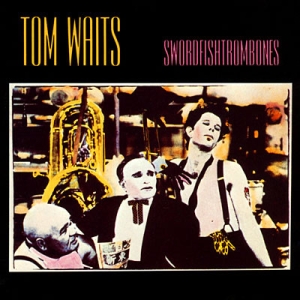
★★★★★ Tracks:
American Girl
Breakdown
Don't Do Me Like That
I Won't back Down
Free Fallin
Mary Jane's Last Dance
My mom used to listen to some great music. Sure, for every Beach Boys, Beatles or Michael Jackson record sitting atop her shelf there were an equal number of Bette Midlers, Reba McEntires and Dirty Dancing soundtracks to muddle the good and the bad. Overall though she introduced me to a lot of good pop, and chances are about 50/50 you could walk in to the house I grew up in and not hear something that totally sucked playing over the stereo. If you walked in on a good day sometime after the fall of 1993, probably a Saturday morning as my mother rigorously vacuumed and dusted every nook and cranny in the house, you might hear Tom Petty’s Greatest Hits. Tom Petty won’t win you many hip points, but damn if he doesn’t write some of the catchiest pop-rock tracks you’ve ever heard. With its great nostalgic familiarity, deceptive craftiness, undeniable cheesiness, but overall enjoyability, the song that perfectly encapsulates Petty's music is “Free Fallin.” I imagine it as one of those epic road trip songs everyone sings along to; Jerry Maguire knows exactly what I'm talking about.
I don’t know Tom Petty album for album all that well, but his Greatest Hits collection is brilliant. You’d be surprised how much of these songs you know and like. The album starts off with the quick-tempoed “American Girl” before quickly and quietly settling in to Tom Petty’s first ever single and my personal favorite of his in “Breakdown.” It’s a gorgeous piece of rock and soul that carries a tinge of 70’s glam you won’t hear in his later work. Output from ‘78-’85 follows (another great aspect to this record is its chronological order), with highlights including “Refugee” and “Don’t Do Me Like That,” both coming from what most critics agree is his best album in Damn the Torpedoes. “Free Fallin,” “I Won’t Back Down,” “Into the Great Wide Open,” and “Learning to Fly” were all originally included on two records, Full Moon Fever, which is his first without the Heartbreakers, and Into the Great Wide Open, and they are his most recognizable tracks to the late 80’s/early 90’s MTV generation like myself. Of the last two songs is another personal favorite, one made exclusively available on the Greatest Hits album but becoming immensely popular in its own right. "Mary Jane's Last Dance” would climb to #1 on the Rock Charts and leave us with a great, memorable, and morbid music video starring Kim Basinger.
Unfortunately my mom’s music tastes have diminished with her age. I don’t get to see her often now that we live on opposite ends of the eastern seaboard, but I know you will no longer find Tom Petty adorning her music shelf, and you won’t find Abbey Road sitting in her mini-SUV. What you will find is more Clay Aiken CDs than I ever knew existed, something by KT Tunstall, more of the same shitty country-pop she listened to, and I’m betting her newest addition is something like Lady Antebellum or Streisand’s Greatest Hits. She should enjoy whatever it is she enjoys but it’s sad to see this age old tale of growing up and tuning out. I never want to be a part of the crowd that finds it fashionable to be ignorant of new music. Aren’t most of us disturbed by the Arcade Fire/Grammy debacle? Do we want to become the next generation of old and out of touch music listeners who know nothing about one of the great rock bands of our time? I don’t. And it’s why I still love the quest to find new music. Going backwards is just as much fun as going forwards though, and if you haven’t done so yet you should take a trip with Tom Petty; I can't think of a singular artist that captures Americana as perfectly as he does.


